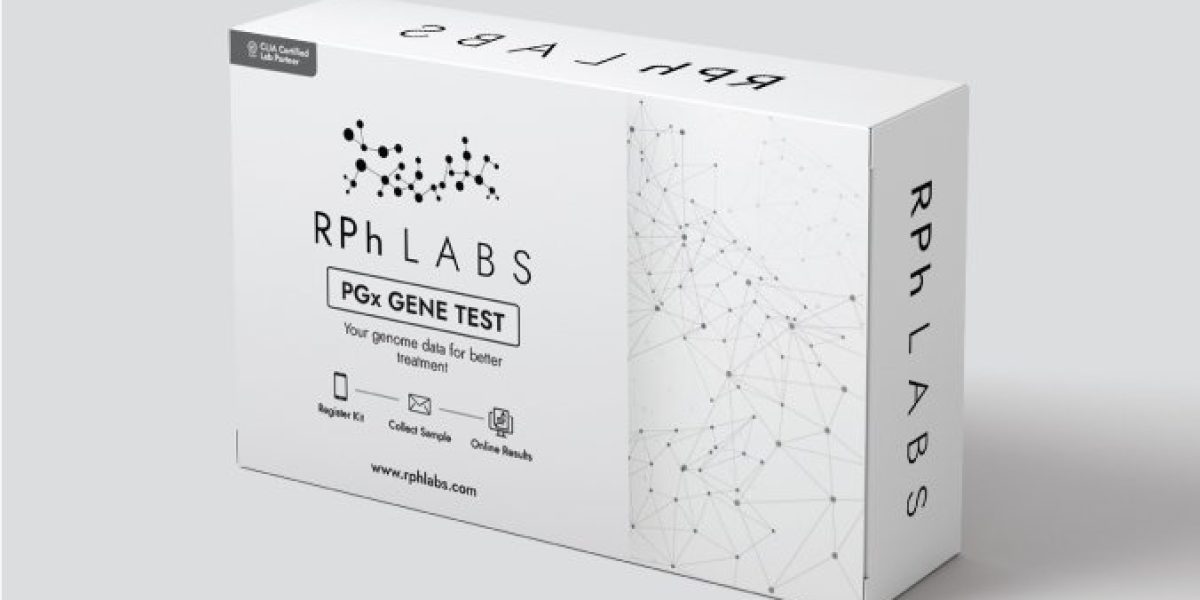Imagine a world where your medication works perfectly for you the first time. No more trial and error, no frustrating side effects. Enter pharmacogenomics, or PGX testing—a groundbreaking field that merges genetics with medicine to tailor treatments specifically to your unique makeup.
As we dive deeper into this fascinating topic, it’s essential to understand how our genes influence our response to various medications. Each of us carries a genetic blueprint that affects everything from how quickly we metabolize drugs to whether we experience adverse reactions. This means that what works wonders for one person might not be effective for another.
The promise of personalized medicine is transforming healthcare as we know it. With PGX testing gaining traction, the landscape of medication management is evolving rapidly. Let’s explore how this innovative approach can improve daily life by making treatments safer and more effective for everyone.
How Does PGX Testing Work?
Pharmacogenomics testing, or PGX testing, analyzes how your genes interact with medications. It focuses on specific genetic variants that influence drug metabolism and response. By examining these genetic markers, healthcare providers can predict how well a medication will work for you.
The process typically starts with a simple cheek swab or blood sample. This sample gets sent to a specialized lab where the DNA is extracted and analyzed. The results reveal insights into your unique genetic makeup.
Once the analysis is complete, healthcare professionals review the findings. They use this information to customize treatment plans tailored specifically to your needs. This approach minimizes trial and error in finding effective medications.
PGX testing not only enhances individual treatment but also reduces potential side effects linked to certain drugs. It shifts the focus from one-size-fits-all prescriptions to targeted therapies based on personal genetics.
Benefits of PGX Testing in Daily Life
Pharmacogenomics (PGX) testing opens the door to a more personalized approach in medicine. Individuals can receive tailored medication recommendations based on their genetic makeup.
This testing helps minimize adverse drug reactions, which can be life-threatening. By understanding how specific genes impact drug metabolism, patients are less likely to experience side effects from medications that don’t suit them.
Moreover, PGX testing enhances treatment efficacy. It allows healthcare providers to prescribe medications that work optimally for each person. This targeted approach often leads to quicker recovery times and improved overall health outcomes.
Additionally, it fosters better communication between patients and doctors. With concrete data about genetic responses to drugs, discussions become more focused and informed.
Integrating PGX testing into everyday healthcare routine equips individuals with the tools they need for effective self-care and proactive management of their health conditions.
Common Medications Affected by Genetics
Certain medications respond differently depending on a person’s genetic makeup. This variation can significantly impact treatment effectiveness and the likelihood of side effects.
Antidepressants, for example, are influenced by genetic factors that determine how quickly they are metabolized. Some individuals may find traditional SSRIs ineffective while others experience severe side effects due to their unique genetic profile.
Blood thinners like warfarin also illustrate this point. Genetic variations can alter how patients process the drug, affecting dosage requirements and increasing risks of complications.
Additionally, cancer treatments often rely on pharmacogenomics to tailor therapies. Drugs such as trastuzumab work effectively only in patients with specific gene expressions related to their tumors.
Understanding these connections is essential for optimizing medication regimens. It allows healthcare providers to make informed decisions based on a patient’s genetics rather than relying solely on trial-and-error approaches.
Personalized Medicine and PGX Testing
Personalized medicine is revolutionizing healthcare by tailoring treatments to individual genetic profiles. Pharmacogenomics (PGX testing) plays a pivotal role in this shift.
This approach allows doctors to predict how patients will respond to specific medications. By understanding genetic variations, healthcare providers can choose the most effective drugs with minimal side effects.
Imagine receiving a prescription designed specifically for your DNA. This isn’t science fiction; it’s becoming reality. With PGX testing, there’s potential for improved outcomes and reduced trial-and-error prescribing.
Many patients may find relief from anxiety about medication management through personalized strategies. The right treatment at the right time could enhance overall wellness significantly.
As more research unfolds, the integration of PGX testing into routine care becomes increasingly feasible. It’s an exciting frontier that promises better health experiences tailored just for you.
Challenges and Controversies Surrounding PGX Testing
Despite its promise, pharmacogenomics faces significant challenges. One major hurdle is the variability in how genetic information is interpreted. Different labs may provide conflicting results, leading to confusion for both patients and healthcare providers.
Cost also presents a barrier. While PGX testing can be beneficial, it often comes with a hefty price tag that isn’t always covered by insurance. This limits access for many individuals who could benefit from personalized treatment plans.
Ethical concerns emerge as well. The implications of genetic data raise questions about privacy and potential discrimination by employers or insurers.
There’s also skepticism within the medical community regarding the readiness of practitioners to interpret these tests accurately. Without proper education on PGX principles, misinterpretation could lead to inappropriate prescribing practices.
These factors contribute to an ongoing debate about the role of pharmacogenomics in everyday medicine and its practical application in diverse patient populations.
Future of Pharmacogenomics in Healthcare
The future of pharmacogenomics in healthcare looks promising and dynamic. As technology continues to advance, we can expect more accessible genetic testing options for patients.
Healthcare providers are increasingly recognizing the importance of tailoring treatments based on individual genetic profiles. This shift towards personalized medicine could lead to improved efficacy and reduced side effects.
Partnerships between pharmaceutical companies and genomic research organizations may drive innovation, resulting in new drugs designed with specific genetic markers in mind.
Moreover, integration of pharmacogenomic data into electronic health records will streamline access for both clinicians and patients. It paves the way for informed decision-making at every step of treatment.
As awareness grows about the impact of genetics on drug response, patient empowerment is also likely to increase. Individuals may become advocates for their own health journeys through understanding their unique genomic makeup.
Conclusion
Pharmacogenomics is revolutionizing the way we approach healthcare. By understanding how our genes impact medication response, we can tailor treatments to fit individual needs more effectively. With PGX testing, patients can experience fewer side effects and better outcomes.
The integration of pharmacogenomics into daily life shows promise for enhancing personalized medicine. As research continues to evolve, it opens doors for even broader applications in various fields beyond just medications.
While challenges remain, the potential benefits far outweigh them. The future appears bright as we move toward a more genomic-driven healthcare system that prioritizes individual patient care based on their unique genetic makeup. Embracing this field could reshape not only treatment protocols but also enhance overall health management in ways previously thought impossible.












